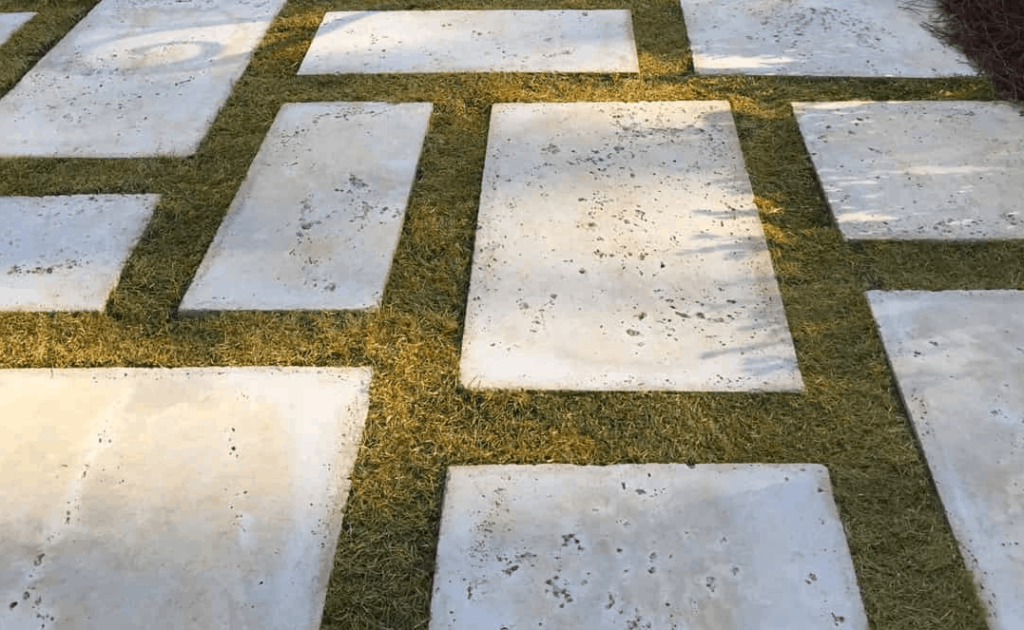Concrete pavers are a lovely and cost-effective way to expand your home’s outdoor space. They offer a great surface for plants and furnishings, are simple to install, and can be utilized practically anywhere.
Unfortunately, they also tend to fade and stain from the elements. Keeping them clean isn’t difficult, but if you want to keep their appearance over a few months, you’ll need some concrete paver sealant. Since there are so many sealing products, it can be hard to figure out which one is right for you.
This article will teach you all there is to know about concrete paver sealants, with help from this website. You will have a thorough understanding of what they do, the numerous varieties available, how they operate, the benefits and drawbacks of each type of sealant, and the top currently on the market.
What is a Concrete Pavers Sealant?
A concrete paver sealant is a liquid or powder that you apply to the surface of your concrete pavers. The adhesive creates a protective barrier that protects your paver surface from damage, prevents stains, and generally extends its usability.
How Do Concrete Paver Sealants Work?
Concrete pavers come with natural grey color and a pattern of tiny pores/cracks on the surface. This texture is great for outdoor spaces. It allows water to drain while providing excellent protection for plants and furniture.
However, it also tends to fade over time and get dirty easily. A sealant is an excellent option to protect concrete pavers. Bonds create a protective barrier over your pavers’ surface that keeps water out, shields them from UV radiation, and prevents stains.
How to Prepare the Concrete for Sealing
It is imperative to prepare the surface for the application of the sealant. It would be beneficial to eliminate the sticking qualities for proper sealant application. Furthermore, you should remove traces of the previously used sealant. Using the etching tool can obtain the optimum result.
For example, you’ll probably want to remove any weeds growing in the cracks, as they may prevent the sealant from penetrating the pores. You can also power wash the surface to get a clean surface. The application process itself is comparable to painting. You start by taping off any areas you don’t want to be covered in sealant before applying the adhesive.

Types of Sealants for Concrete Pavers
There are two main types of concrete paver sealants: penetrating and non-penetrating.
Penetrating sealants seep deep into the concrete’s pores and build a barrier inside. Penetrating sealants are an excellent option if your water contains many natural minerals. They can help to remove harmful minerals from your water, extending the lifespan of your paver surface even more.
Penetrating sealants also work well if you have a very porous paver surface. Porous paver surfaces, such as those made of sandstone, collect more dirt, making them harder to clean. A penetrating sealant is the best option in this case.
Unlike the penetrating sealant, non-penetrating sealants lie on the surface of the concrete and create a wall there instead.
Pros and Cons of Different Types of Sealants
Penetrating sealants are very effective at protecting your pavers from water, but they aren’t very good at keeping out dirt. Non-penetrating bonds, on the other hand, are excellent in excluding dirt but less effective for water.
Both types of sealants last for a year or two before needing to be reapplied. However, if you have very porous concrete pavers, you may want to reapply more frequently.
Concrete pavers are a great addition to any outdoor patio or pathway. Unfortunately, they tend to stain, fade, and crack over time. A concrete paver sealant is a great way to protect your pavers against the elements and keep them looking new for longer.
Concrete pavers are best for larger spaces that require a smooth, durable surface to walk on. They are perfect for patios, walkways, driveways, and larger areas around the house or garden. While they can be used indoors in some cases, they are not appropriate for smaller areas such as around a garden bed.






